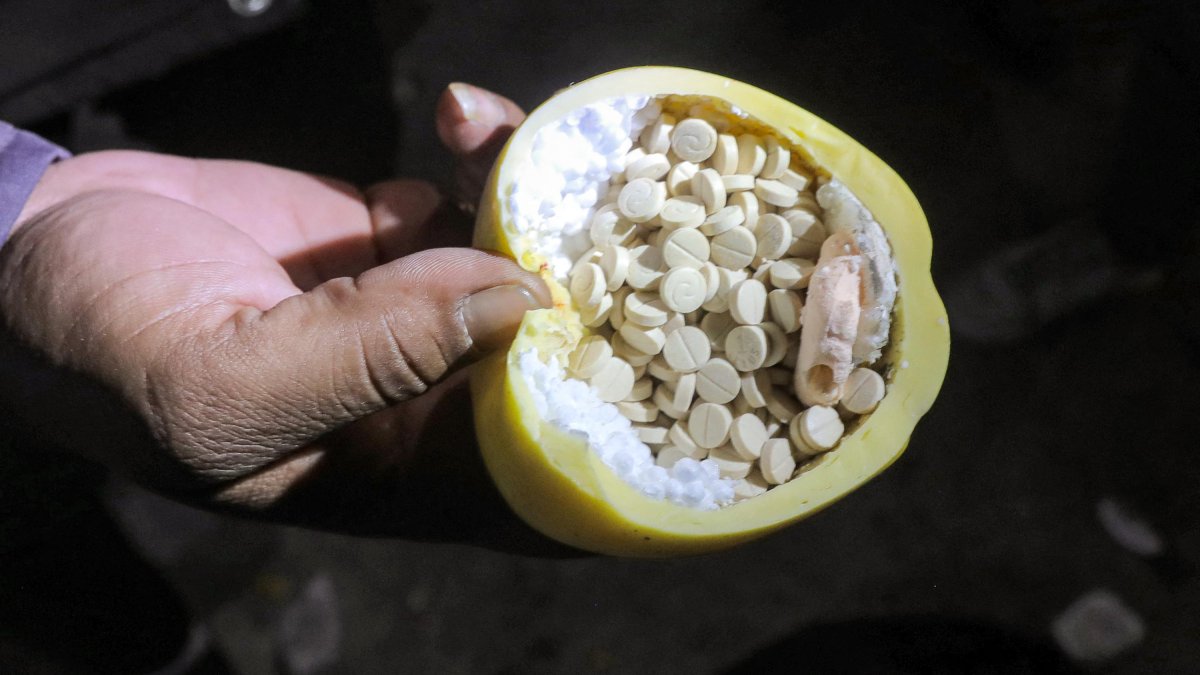Captagon, the drug that kept the al-Assad regime in Syria on its feet
Trafficking of Captagon, whose use is commonly associated with Islamic terrorists, was overseen by the brother of the former Syrian dictator and generated more than $5 billion annually for the al-Assad government, which joined forces with Hezbollah and Iran to produce and smuggle the drug.

Captagon pills found in Syrian drug manufacturing facility.
Captagon, known as the “ISIS courage drug” or the “cocaine of the poor,” generated more than $5 billion annually for the Bashar al-Assad regime in Syria and was considered that country's main export industry.
The Israel Defense Forces (IDF) found pills of this amphetamine among the belongings and bodies of Hamas terrorists in the Gaza Strip. Also, according to reports, this drug is used by Islamic State (ISIS) jihadists to commit atrocities.
Recently, a video was circulated on social media allegedly showing a warehouse of Captagon, the drug that transformed Syria into a narco-state. The Arab country is believed to produce 80% of the world's production.
The U.S. Treasury sanctioned several Syrians connected to the al-Assad regime in 2023 for their alleged involvement in the Captagon trade.
Captagon trafficking helped the al-Assad regime stay on its feet
Professor Eyal Zisser, an expert on Syria and vice chancellor of Tel Aviv University in Israel, argued in statements to the Israeli newspaper Yedioth Ahronoth that the drug flourished in Syria with the support of Iran and the cooperation of Hezbollah. He added that it kept the al-Assad regime on its feet after its economy collapsed following the outbreak of the civil war in 2011.
The man in charge of the production centers was Maher al-Assad, Bashar's brother and commander of the Syrian Army's Fourth Division, which was known as the “Captagon Division,” as it was in charge of overseeing the production and smuggling of the drug, Zisser said.
In recent years, Jordan has attacked Syrian positions related to Captagon production and storage to counter smuggling into its territory. These offensives also killed civilians, resulting in protests against the al-Assad regime in villages in the area.
VIDEO: 🇸🇾 Assad government's captagon trade exposed in Syria
— AFP News Agency (@AFP) December 13, 2024
The collapse of Bashar al-Assad's government in Syria has thrown light into the dark corners of his rule, including the industrial-scale export of the banned amphetamine-type stimulant#AFPVertical pic.twitter.com/KRf3Xpmh94
Al-Assad, Iran and Hezbollah joined forces for the production and smuggling of Captagon
Miri Eisin, senior researcher at the International Counter Terrorism Institute (ICT) in Israel, told Yedioth Ahronoth that traditionally, Syria was a country with a simple pharmaceutical industry, which was sufficient to sustain the economy and export products to the world.
However, in 2006, after the Second Lebanon War between Israel and Hezbollah, the Iranian regime established a counterfeit drug industry for the Lebanese terrorist group as a source of income, under the facade of rebuilding Lebanon, the Israeli researcher added.
After some time, however, Hezbollah began producing Captagon. It built production lines to manufacture both counterfeit medicines and the drug, which were run by al-Assad's brother, Eisin said. He added that production was carried out in Lebanon, while smuggling was carried out from Syria.
Captagon turns people into killing machines: Fact or fiction?
Captagon is the old trade name for phenethylline, created in Germany in the 1960s to treat attention deficit hyperactivity disorder (ADHD), depression and narcolepsy. The drug was banned in the 1980s due to its negative side effects, such as psychosis, prolonged insomnia, appetite suppression, cardiovascular disease and addiction.

World
The Assad dynasty in Syria: a history of violence, authoritarianism and corruption
Leandro Fleischer
While, as mentioned, it is often associated with a drug used by terrorist groups such as Islamic State (ISIS) or Hamas to commit heinous crimes, Ido Hartogsohn, a historian and sociologist of consciousness-altering drugs at Bar-Ilan University in Israel, qualified this perception in remarks to Yedioth Ahronoth.
"In our culture, there is a tendency to demonize psychedelic substances and claim that they are drugs that make people kill and rape, turning them into killing machines. But the reality is simpler. Captagon is a stimulant, like the amphetamines that powered the Nazi army during World War II or that students use to study for exams." And he added that it was not Captagon that made Hamas terrorists invade Israel and commit atrocities, "but it gave them energy, a sense of euphoria and release of inhibitions. Alcohol also releases inhibitions and is linked to acts of violence."

























